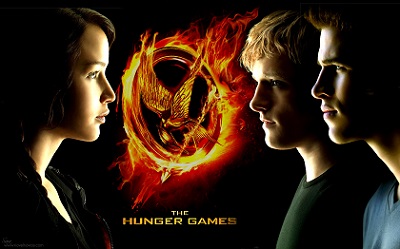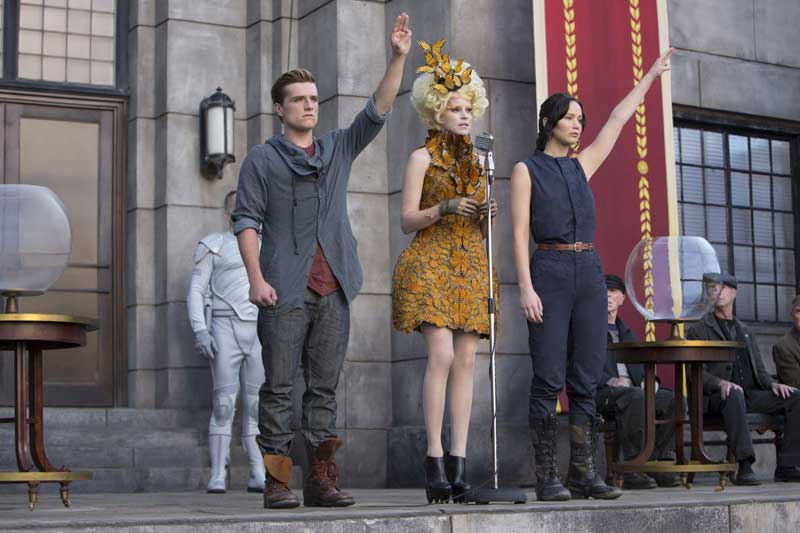
January 26, 2015, by Sunita Tailor
I watch films as part of my degree… !
This blog post was written by second year English student, Una Kunhya from the School of English.
It was 2pm, I was sat in bed in my jammies, and my housemates walked into my room and found me watching The Hunger Games. I should mention that this was on day 3 of the first week of autumn semester exams. I completed my only exam on the first day and handed in my coursework, so I was planning ahead by conquering my spring semester reading list (I’m keen and I love it). Back to my housemates, 2 of them (both engineers might I add) began to question me why I was taunting them by lazing around as they tried not to go insane with their many? exams. I reassured them that watching this film (and eventually reading the book!) was part of the 2nd year module ‘Literature and Popular Culture’. Many derogatory terms were thrown around (predominately aimed at my degree but I feel that is a different topic in itself) at the fact I got to watch films whilst they had their heads stuck in equations.
It got me questioning, however, should popular films and books be included as a module of an English degree. My brother (unfortunately) summed up the module quite frankly: how can he view my module, and coincidentally my entire course, as worthy, when books and films that people watch and read for enjoyment counted towards my degree? There is some sense that when I read the ‘classics’ I feel that I am earning my degree as I am studying texts which are seen to be historically creditable. When I state ‘historically creditable’ I am referring to texts within the literary canon, such as Harper Lee’s To Kill a Mockingbird or William Golding’s Lord of the Flies. I almost feel embarrassed reading The Hunger Games in public; a series I last read alongside the Twilight series.
I believe, however, that there is almost resentment towards these so called ‘fun modules’. Looking specifically at The Hunger Games, I think people forget that the series are novels because of the association with the multi-million dollar films, the actors and the glamour, have tainted and overshadowed what can be seen as an inspirational message within the books.
Most recently the famous ‘three finger salute’ was seen being used in the Thailand protests against their government.
In November 2014, Thai university students were arrested for giving the salute during a speech by the Prime Minister Prayuth Chan-ocha. Consequently, the Thai authorities banned the gesture, arresting anyone seen rendering the silent salute. The New York Times mentioned that ‘one student who was detained performed another banned act of protest, silently reading George Orwell’s dystopian novel “1984” in public’ . One of these ‘classic’ books is standing alongside a ‘tween’ book against a military government. This just shows the evolution of literature. English students cannot be always stuck re-reading Austen and Dickens; however noteworthy they may be. We live in a new age.
Just as a science-based degree introduces new technology and theories into their modules, English departments must acknowledge new literature regardless of the way it is being perceived in the public viewpoint. So, next on my list is Clockwork Orange!
[Featured image from http://blog.witness.org/]
No comments yet, fill out a comment to be the first


Leave a Reply